Pakistan is full of paradoxes and its diplomats only add to the list of flavours.
On 11 Aug 2022, a senior Pakistani diplomat and Consul General of Paki¬stan in Spanish city of Barce¬lona, Mirza Salman Baig, was sacked from his position on sexual harassment charges levelled by a local staffer of the consulate, credible sources reported.
While the matter is currently under investigation, and so it may not be correct to comment or speculate about it, what should be of larger concern to the global community are the series of misdemeanours that have recently cropped up in regard to Pakistani diplomats.
To illustrate, early in 2021, Pakistan's Ambassador to Saudi Arabia, Raja Ali Ejaz, was recalled and admonished for 'mistreatment and neglect of Pakistani expats’. Other allegations against his staff included bribery, and dereliction of duty in so far as looking after Pakistani citizens aboard was concerned. In another instance the same year, two Pakistani diplomats, were caught stealing a hat worth $ 10.70 and chocolate for $ 1.7 in Yongsan, Korea. Other troubling headlines also surfaced over the next few months, such as allegations of domestic abuse against Munir Akram, Pakistan's current Permanent Representative to UN; Assistant Visa Officer at the Pakistani High Commission in Dhaka, Mazhar Khan's arrest for dealing in fake currencies in 2015; two Pakistani diplomats in the UK charged with child abduction and rape in 2014 – a crime so serious that Islamabad voluntarily surrendered their diplomatic immunity; Waqas Ahmed, a Pakistani diplomat in Harare arrested and imprisoned for human trafficking in May 20 - the list of charges is horrifying - human trafficking, money laundering, sexual harassment and even sexual misconduct with minors.
An isolated incident may reflect an individual's character flaws, but such incidences' regular and repeated occurrence tells a different story about Pakistan's diplomats in specific and Pakistani society in general. This is not to say that all Pakistanis are corrupt, barbaric, lawless brutes. However, what such a trend points towards is a seeming moral decay in Pakistani society because of the conspicuous absence of a tradition of effective, exemplary leadership. We need to ask ourselves – after Jinnah, has Pakistan had any leaders of the stature of a Sardar Vallabh Bhai Patel, Barrack Obama, or Mikhail Gorbachev? Does (and more importantly can) a Nawaz Sharif (currently on expired Bail in London for medical treatment), or Benazir Bhutto (assassinated by a bomb blast in 2007), measure up to an Atal Behari Vajpai, or an Indira Gandhi? And the answer to this is a dismal, yet telling no! Though, one must bear in mind that the ‘no’ doesn’t come because of individual shortcomings, as much as it comes because of the lack of a true democratic framework in the country’s governance setup. The absence of such a framework has been a major reason at the heart of the petty, internecine, self-centred nature of Pakistani society and governmental structures as a whole.
To further elaborate, Jinnah, in his Anglophonic orderliness, had adopted the British-style parliamentary system in 1947. However, it took respective Pakistani constituent assembly/assemblies nine years of virulent infighting to frame Basic Laws, which are supposed to be the social contract between the State and the people, which form the essential rubric of any ‘civilised’ society. Nor surprisingly, these had not even been sanctified by an election when General Ayub Khan imposed his martial law in 1958. The first countrywide general elections were held in 1970 (twenty-three years after Pakistan was formed) which ironically led to the break-up of the country after nine months i.e. the 1971 Indo-Pak War and the creation of Bangladesh.
Thus, Pakistan society and its governmental institutions have never got either the cushioning of a strong, steadfast, stable democracy; nor the blessings of visionary leadership, given that its leaders are either assassinated, or exiled, or thrown into jail for disagreeing with the Pakistani Army and ISI. The result becomes all too apparent when one reads about the Nawaz Sharifs, Imran Khans, and the Bhuttos (both Zulfikar and Benazir); or are shocked by recent headlines about Pakistan diplomats breaking new records in the field of misdemeanours and crimes.
It is a sad realisation, given that a nation's diplomatic cadre is meant to be the most exemplary reflection of its society and ethos. These individuals are carefully selected and groomed to embody the culture and values of their country. Perhaps, seventy-five years of governance failure in Pakistan due to its leaderships’ selfish hunger for power is slowly bursting at the seams, and showing the true rot at the heart of an already failing nation.
Learning from a similarly-aged country from across the border is an option that is always available. Though, this may never happen, given that ‘hubris’ is a close friend of ‘overweening hunger for power’ that Pakistani politics and State machinery has been both a victim and perpetrator of, since 1947.
![submenu-img]() T20 World Cup 2024: ICC reprimands Afghanistan captain Rashid Khan ahead of semi-final vs South Africa
T20 World Cup 2024: ICC reprimands Afghanistan captain Rashid Khan ahead of semi-final vs South Africa![submenu-img]() Veteran BJP leader LK Advani admitted to AIIMS Delhi
Veteran BJP leader LK Advani admitted to AIIMS Delhi![submenu-img]() DNA TV Show: Did Delhi CM Arvind Kejriwal put blame on Manish Sisodia in liquor policy case?
DNA TV Show: Did Delhi CM Arvind Kejriwal put blame on Manish Sisodia in liquor policy case?![submenu-img]() Watch: Shatrughan Sinha shares inside photos, videos from Sonakshi Sinha, Zaheer Iqbal's 'wedding of the century'
Watch: Shatrughan Sinha shares inside photos, videos from Sonakshi Sinha, Zaheer Iqbal's 'wedding of the century'![submenu-img]() Kalki 2898 AD director Nag Ashwin reveals these two south stars will also appear in film, Prabhas reacts: Watch
Kalki 2898 AD director Nag Ashwin reveals these two south stars will also appear in film, Prabhas reacts: Watch![submenu-img]() Meet woman who topped class 10, 12, CLAT, law school, cracked UPSC in 1st attempt without coaching to become IAS with...
Meet woman who topped class 10, 12, CLAT, law school, cracked UPSC in 1st attempt without coaching to become IAS with...![submenu-img]() Meet IIT-JEE topper with AIR 7, daughter of Maths teacher, scored 332 marks in JEE Advanced 2024, planning to...
Meet IIT-JEE topper with AIR 7, daughter of Maths teacher, scored 332 marks in JEE Advanced 2024, planning to...![submenu-img]() UPSC topper IAS Tina Dabi's Class 12 marks goes viral on social media, check her scores in different subjects
UPSC topper IAS Tina Dabi's Class 12 marks goes viral on social media, check her scores in different subjects![submenu-img]() Meet woman who is not from IIT, IIM, VIT, NIT, got job with record-breaking package of...
Meet woman who is not from IIT, IIM, VIT, NIT, got job with record-breaking package of...![submenu-img]() Meet Indian genius who saved lakhs of lives with his discovery, received six Nobel nominations, but never won due to…
Meet Indian genius who saved lakhs of lives with his discovery, received six Nobel nominations, but never won due to…![submenu-img]() DNA Verified: Did Kangana Ranaut party with gangster Abu Salem? Actress reveals who's with her in viral photo
DNA Verified: Did Kangana Ranaut party with gangster Abu Salem? Actress reveals who's with her in viral photo![submenu-img]() DNA Verified: New Delhi Railway Station to be closed for 4 years? Know the truth here
DNA Verified: New Delhi Railway Station to be closed for 4 years? Know the truth here![submenu-img]() DNA Verified: Did RSS chief Mohan Bhagwat praise Congress during Lok Sabha Elections 2024? Know the truth here
DNA Verified: Did RSS chief Mohan Bhagwat praise Congress during Lok Sabha Elections 2024? Know the truth here![submenu-img]() DNA Verified: Is CAA an anti-Muslim law? Centre terms news report as 'misleading'
DNA Verified: Is CAA an anti-Muslim law? Centre terms news report as 'misleading'![submenu-img]() DNA Verified: Lok Sabha Elections 2024 to be held on April 19? Know truth behind viral message
DNA Verified: Lok Sabha Elections 2024 to be held on April 19? Know truth behind viral message![submenu-img]() Alia Bhatt mesmerises in gown, Ranbir Kapoor looks classy in tuxedo in latest romantic photos, fans say 'couple goals'
Alia Bhatt mesmerises in gown, Ranbir Kapoor looks classy in tuxedo in latest romantic photos, fans say 'couple goals'![submenu-img]() Newlyweds Sonakshi Sinha-Zaheer Iqbal pose candidly with paps; Anil Kapoor, Kajol, Huma Qureshi attend wedding reception
Newlyweds Sonakshi Sinha-Zaheer Iqbal pose candidly with paps; Anil Kapoor, Kajol, Huma Qureshi attend wedding reception![submenu-img]() Meet Lovekesh Kataria: Elvish Yadav's close friend, Bigg Boss OTT 3 contestant who lied to father, spent his fees on...
Meet Lovekesh Kataria: Elvish Yadav's close friend, Bigg Boss OTT 3 contestant who lied to father, spent his fees on...![submenu-img]() From Highway to Chandu Champion: 5 underrated gems from Sajid Nadiadwala
From Highway to Chandu Champion: 5 underrated gems from Sajid Nadiadwala![submenu-img]() In pics: Bigg Boss OTT 3 house with dragons, two-sided walls is all about fantasy coming alive
In pics: Bigg Boss OTT 3 house with dragons, two-sided walls is all about fantasy coming alive![submenu-img]() Lok Sabha Speaker's Election: What does the Constitution say?
Lok Sabha Speaker's Election: What does the Constitution say?![submenu-img]() Explained: Why is Kerala demanding to change its name to Keralam?
Explained: Why is Kerala demanding to change its name to Keralam?![submenu-img]() DNA Explainer: What is Kafala system that is prevalent in gulf countries? Why is it considered extremely brutal?
DNA Explainer: What is Kafala system that is prevalent in gulf countries? Why is it considered extremely brutal? ![submenu-img]() Lok Sabha Elections 2024: What are exit polls? When and how are they conducted?
Lok Sabha Elections 2024: What are exit polls? When and how are they conducted?![submenu-img]() DNA Explainer: Why was Iranian president Ebrahim Raisi seen as possible successor to Ayatollah Khamenei?
DNA Explainer: Why was Iranian president Ebrahim Raisi seen as possible successor to Ayatollah Khamenei?![submenu-img]() Watch: Shatrughan Sinha shares inside photos, videos from Sonakshi Sinha, Zaheer Iqbal's 'wedding of the century'
Watch: Shatrughan Sinha shares inside photos, videos from Sonakshi Sinha, Zaheer Iqbal's 'wedding of the century'![submenu-img]() Kalki 2898 AD director Nag Ashwin reveals these two south stars will also appear in film, Prabhas reacts: Watch
Kalki 2898 AD director Nag Ashwin reveals these two south stars will also appear in film, Prabhas reacts: Watch![submenu-img]() Kaun Banega Crorepati 16: Amitabh Bachchan introduces thought-provoking campaign, fans say 'eagerly waiting for show'
Kaun Banega Crorepati 16: Amitabh Bachchan introduces thought-provoking campaign, fans say 'eagerly waiting for show'![submenu-img]() Why Kalki 2898 AD makers chose June 27 release date? Know how it is connected to Mahabharata, Lord Vishnu
Why Kalki 2898 AD makers chose June 27 release date? Know how it is connected to Mahabharata, Lord Vishnu![submenu-img]() Ahead of Kalki 2898 AD's release, makers have this request from fans: 'Let's please respect...'
Ahead of Kalki 2898 AD's release, makers have this request from fans: 'Let's please respect...'![submenu-img]() Mukesh Ambani's son Anant Ambani and Radhika Merchant's wedding invite goes viral, watch video here
Mukesh Ambani's son Anant Ambani and Radhika Merchant's wedding invite goes viral, watch video here![submenu-img]() '4 bhk for 15 crore,': Netizens in shock after Noida man's video for house hunt goes viral
'4 bhk for 15 crore,': Netizens in shock after Noida man's video for house hunt goes viral![submenu-img]() Isha Ambani's latest picture with twins is going viral on social media due to...
Isha Ambani's latest picture with twins is going viral on social media due to...![submenu-img]() Gulbadin Naib under scrutiny, may face heavy fine after dramatic Afghanistan win
Gulbadin Naib under scrutiny, may face heavy fine after dramatic Afghanistan win![submenu-img]() Makeover of homeless woman leaves internet stunned, netizens says...
Makeover of homeless woman leaves internet stunned, netizens says...

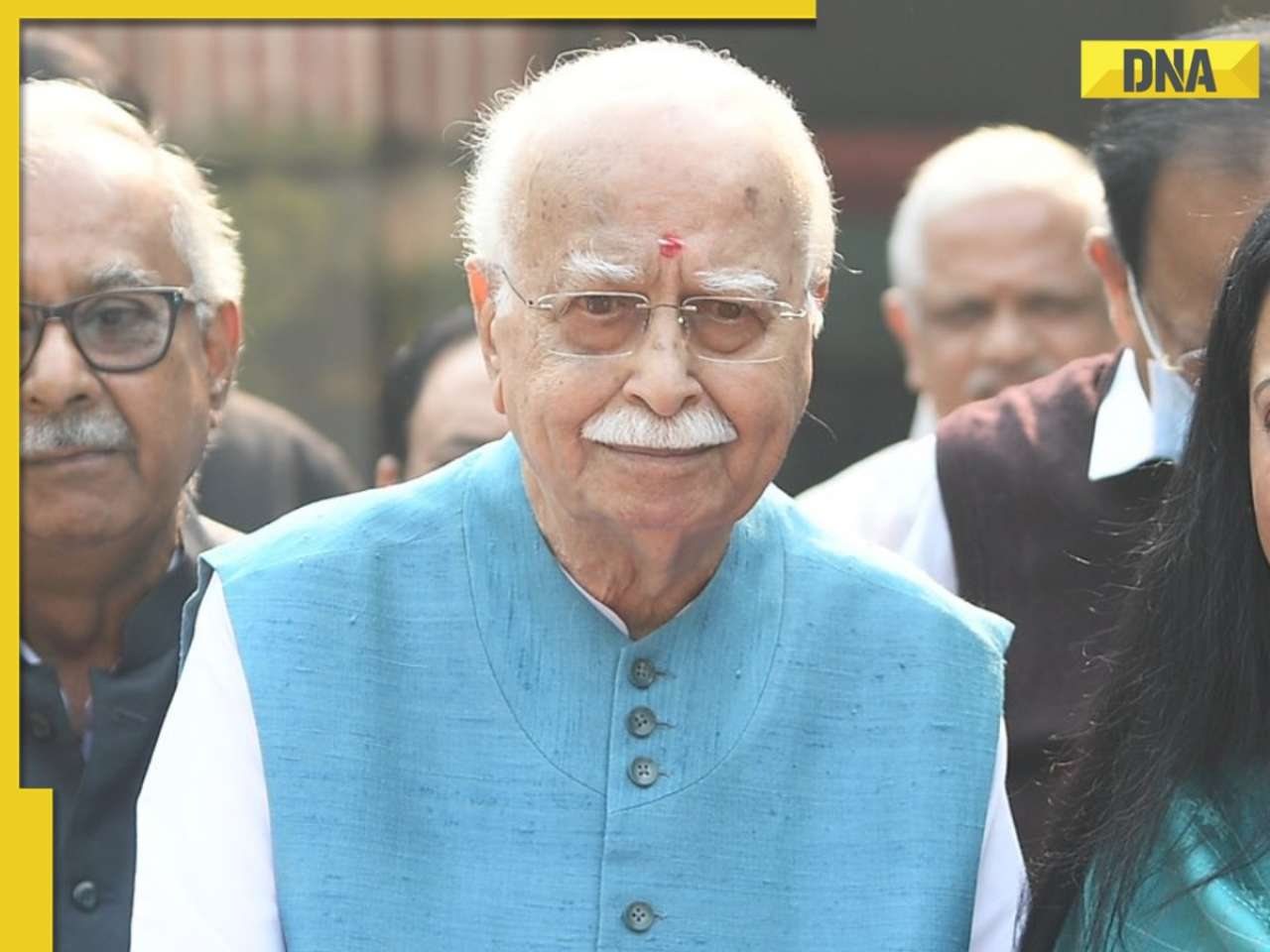











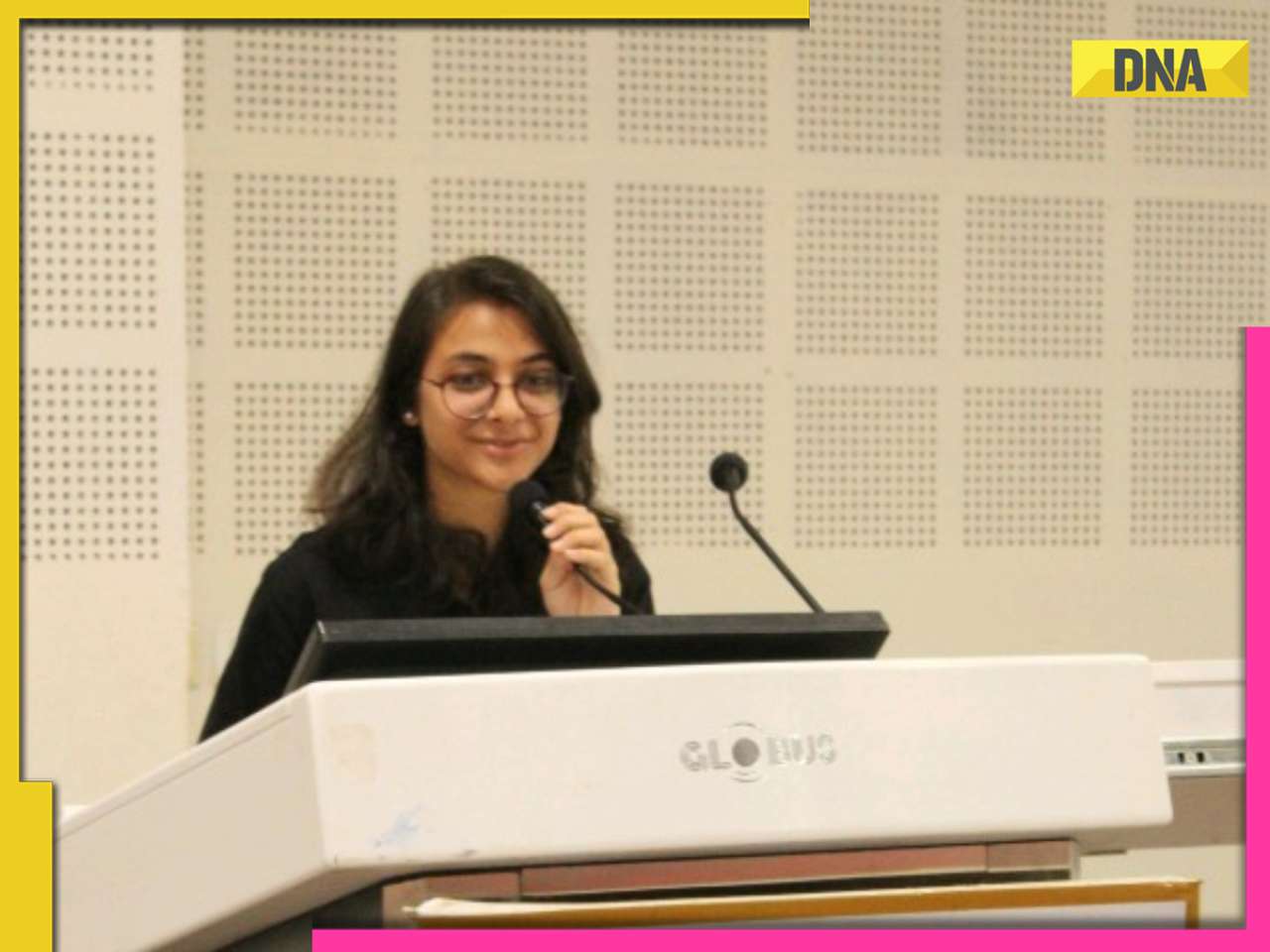
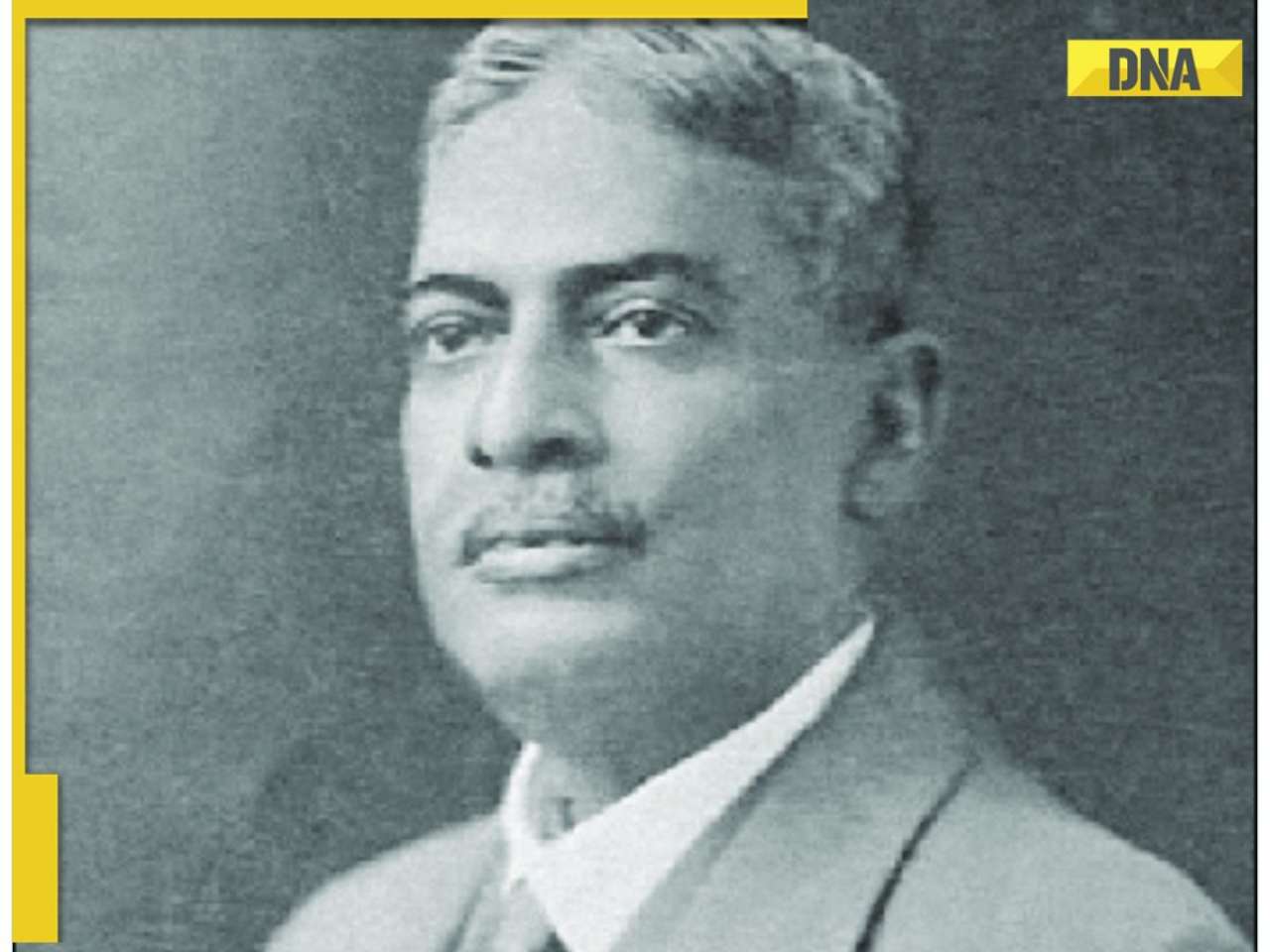





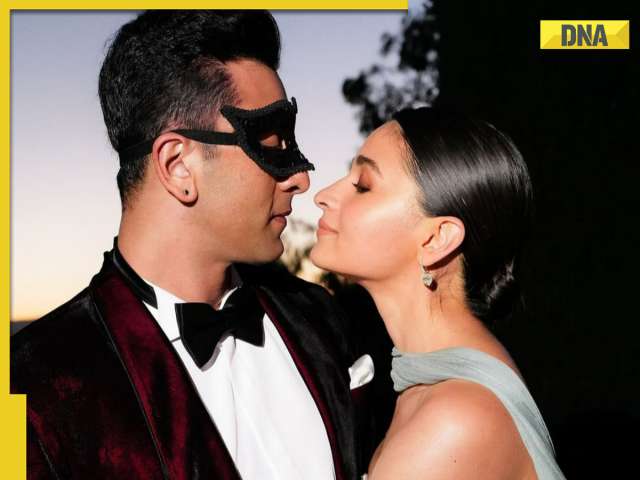




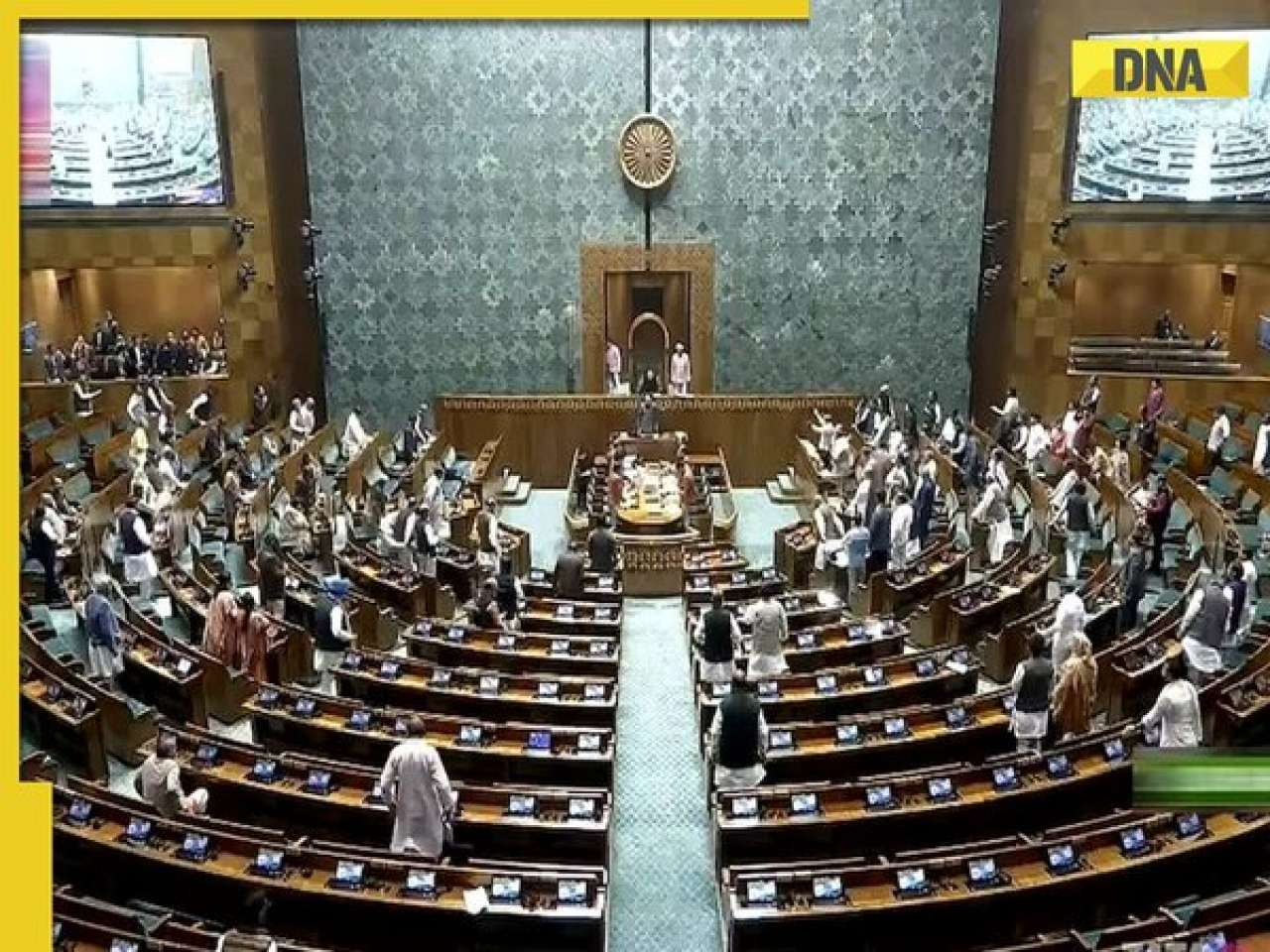
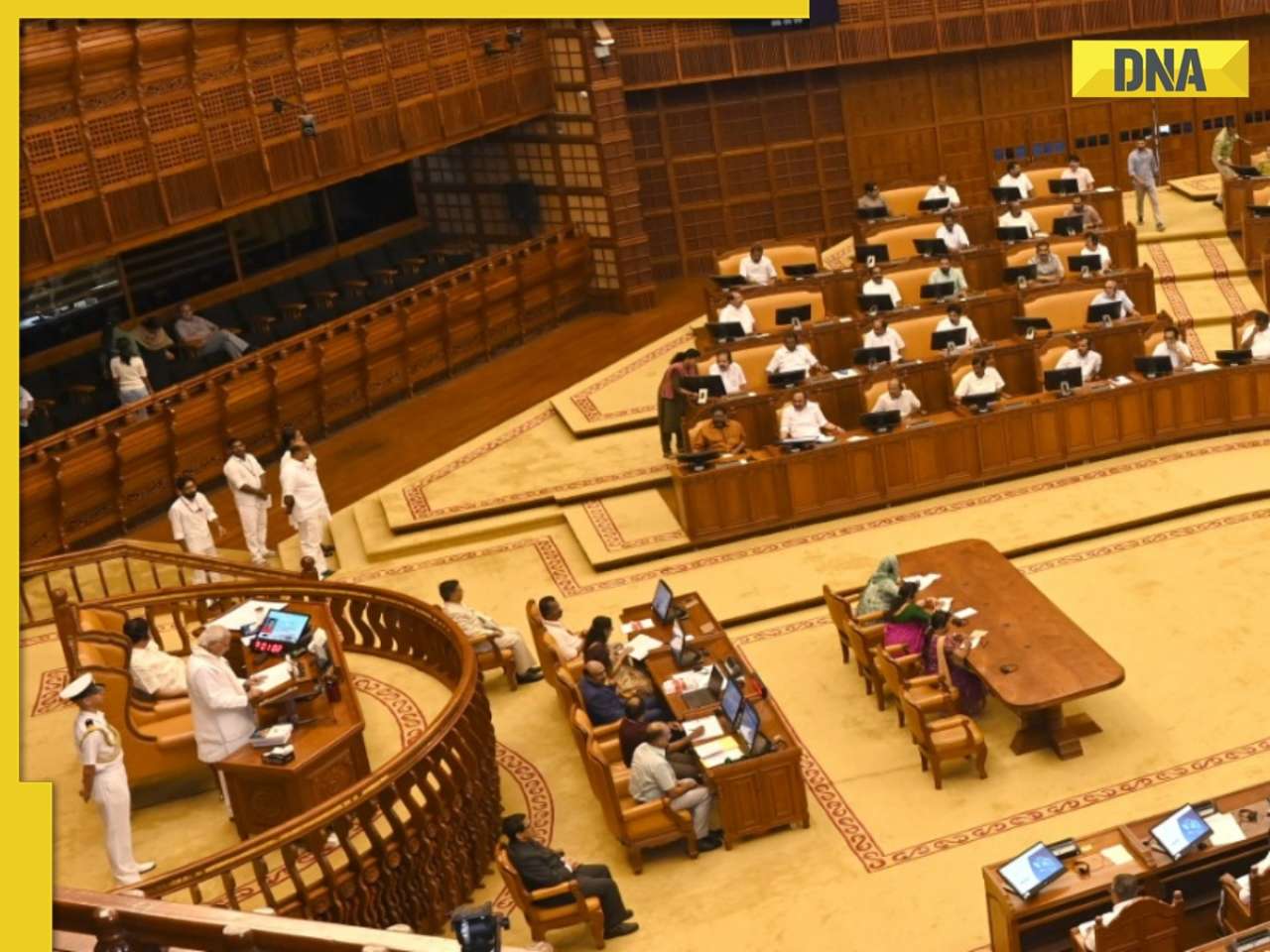



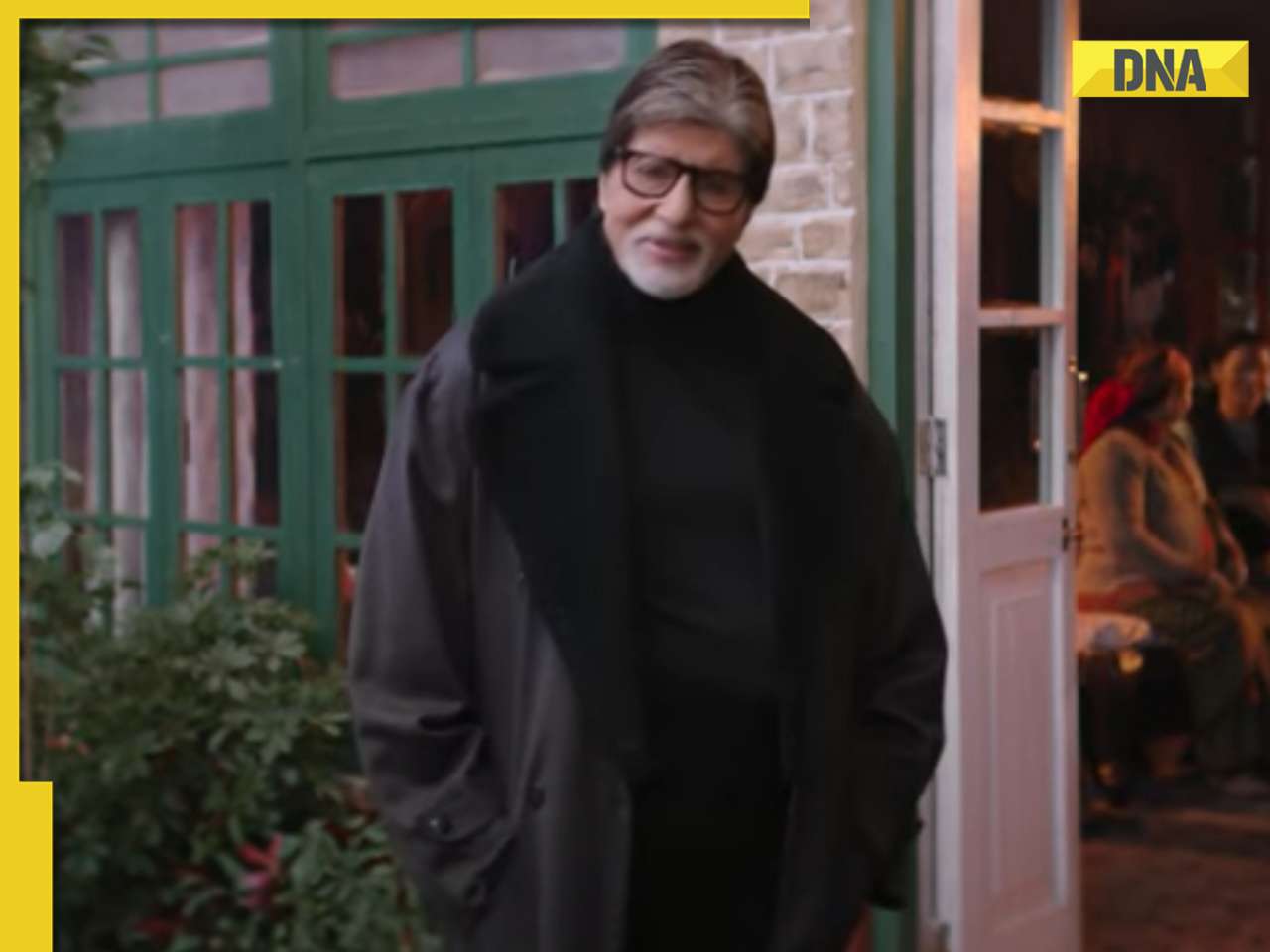


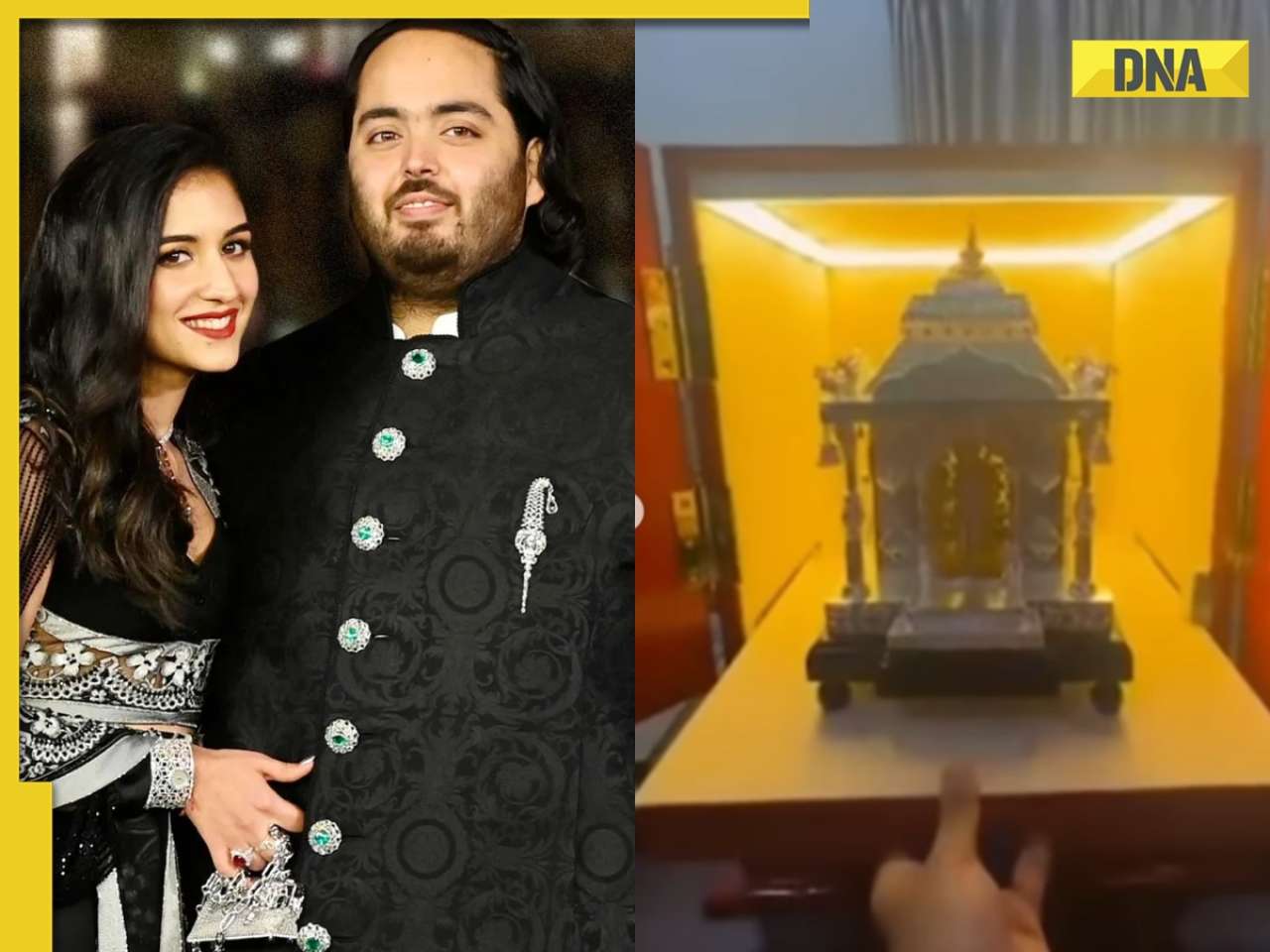
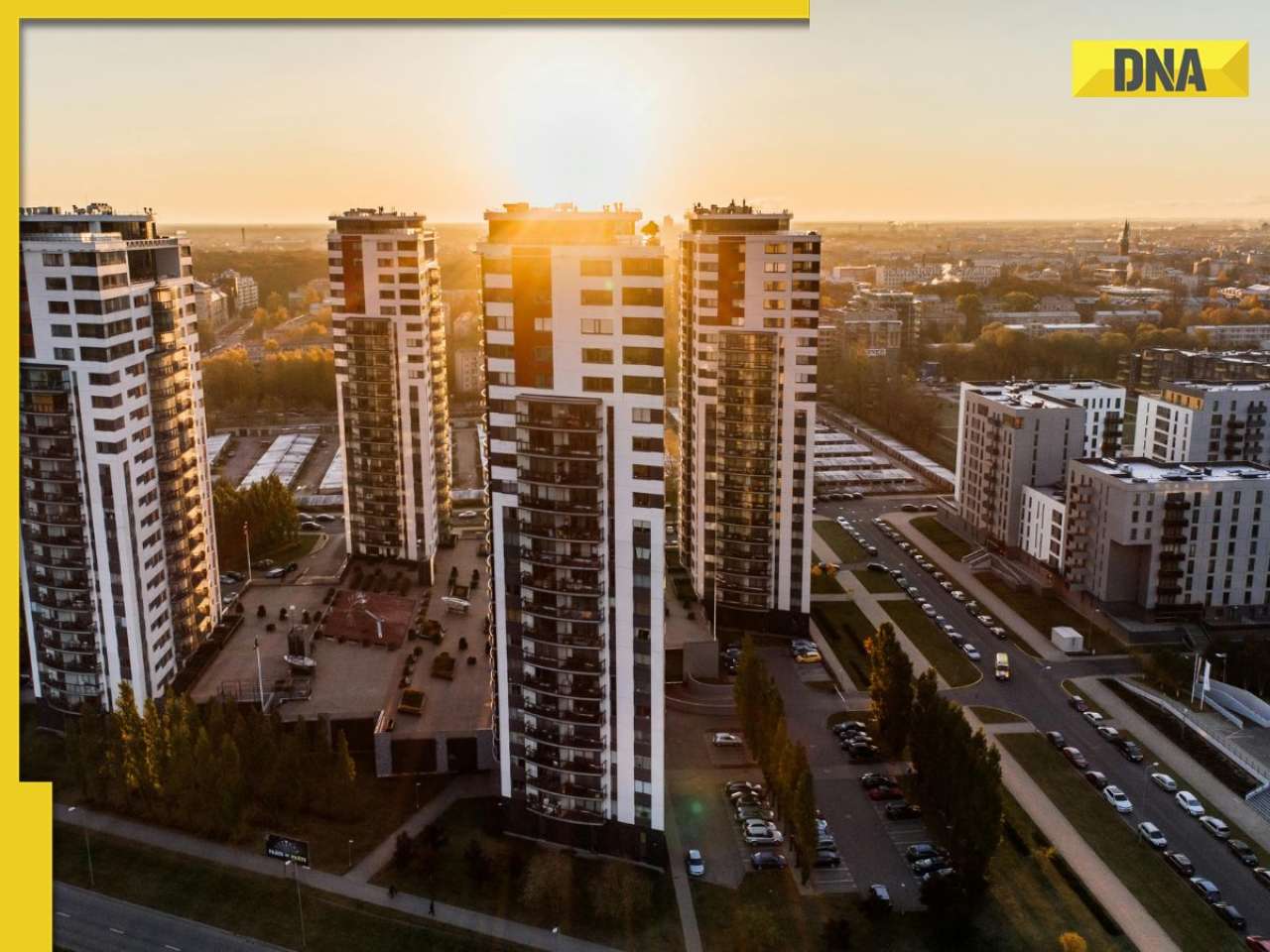




)

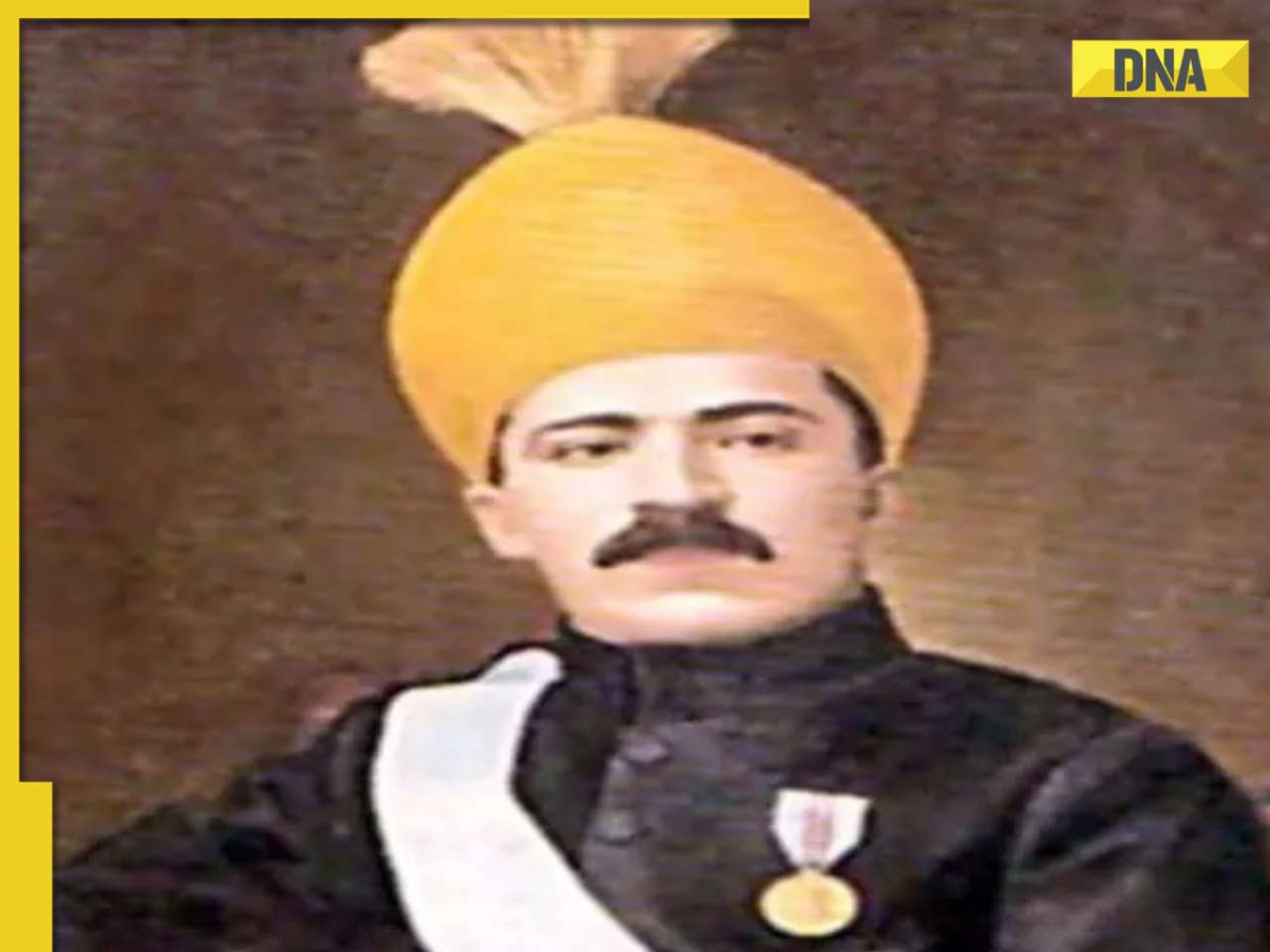










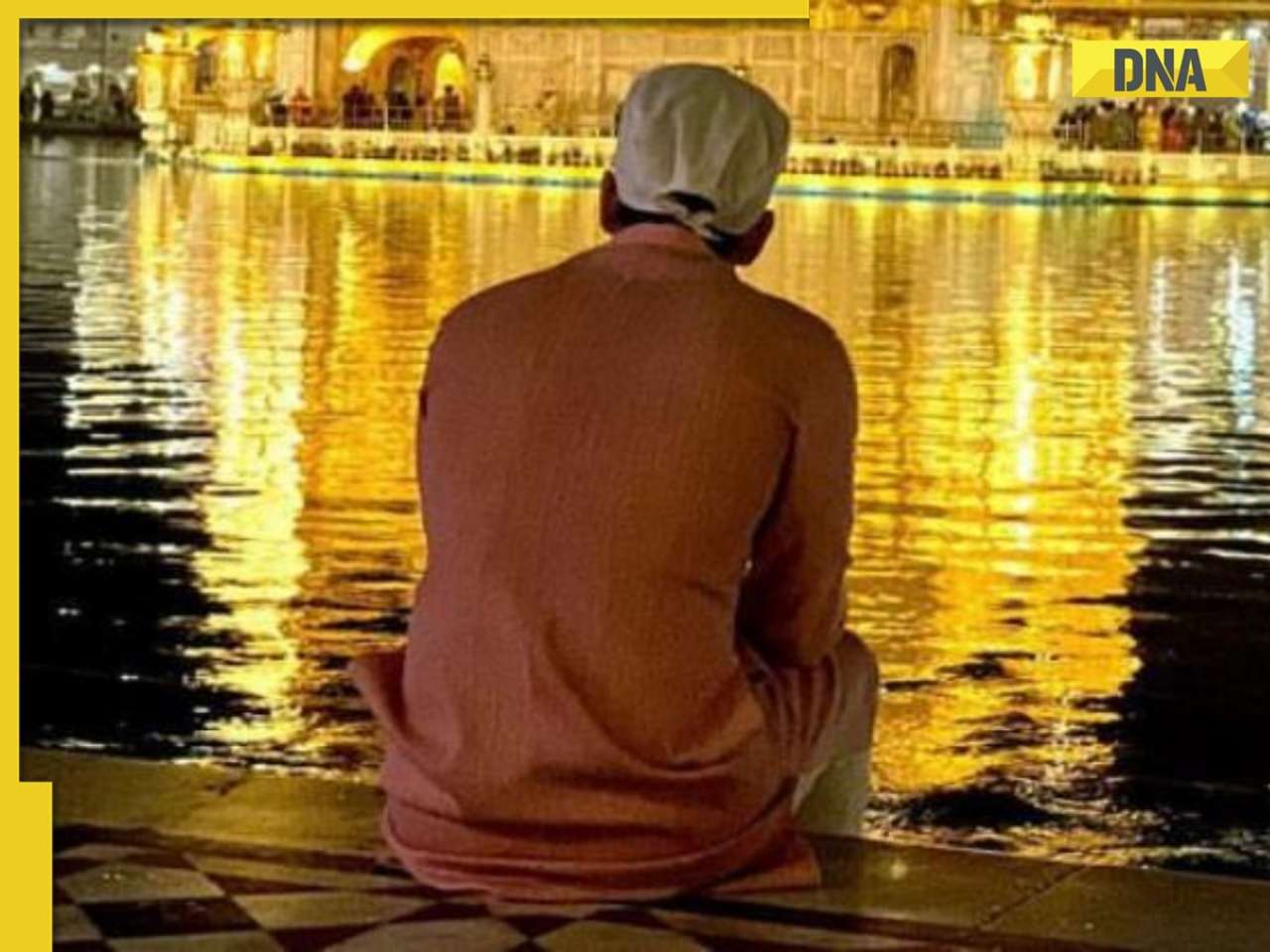





)
)
)
)
)
)